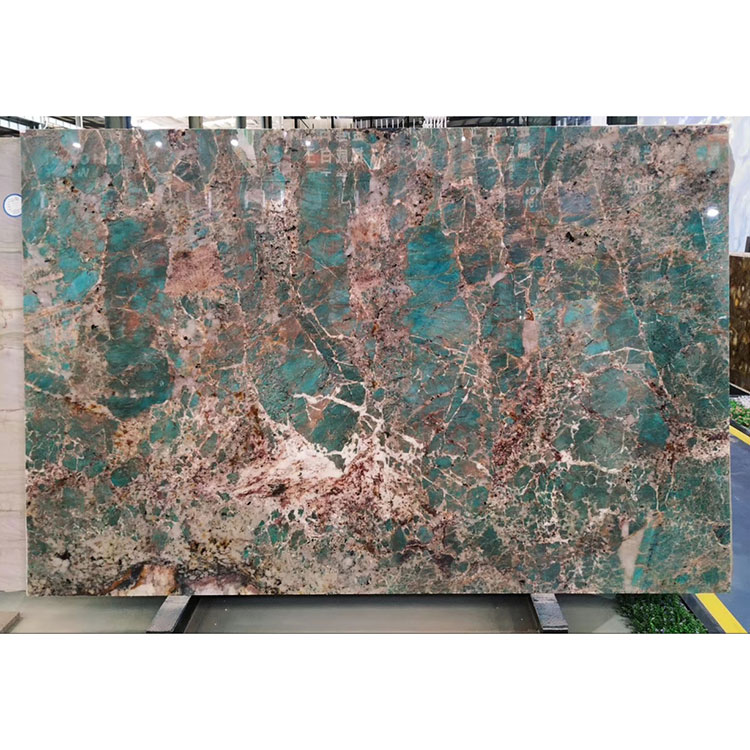Considerations regarding granite slabs
2023-10-17
Granite slabs are large, solid pieces of natural stone that are commonly used as countertops, flooring, wall cladding, and other architectural applications. Granite is an igneous rock composed primarily of quartz, feldspar, and other minerals. It is highly valued for its durability, beauty, and versatility. Here are some key features and considerations regarding granite slabs:
1. Aesthetic Appeal: Granite slabs exhibit a wide range of natural colors and patterns, making each slab unique. Colors can vary from light to dark, including shades of white, gray, beige, black, and various hues of red, green, and blue. The characteristic speckled or mottled appearance is due to the presence of different minerals within the rock. The natural beauty of granite can enhance the visual appeal of any space.
2. Durability: Granite is known for its exceptional durability and strength. It is a hard stone that resists scratching, chipping, and cracking. It can withstand heavy use and is highly resistant to heat, making it suitable for kitchen countertops where hot pots and pans are frequently placed. Granite is also resistant to stains when properly sealed, although certain acidic substances may cause etching if left on the surface for extended periods.
3. Low Maintenance: Granite slabs are relatively low maintenance. They are resistant to most household chemicals and can be easily cleaned with mild soap and water. However, it is important to avoid harsh or abrasive cleaners that can dull the polished surface. Granite countertops should be sealed upon installation and periodically resealed to protect against staining and to maintain their appearance.
4. Versatility: Granite slabs can be used in a variety of applications, including kitchen countertops, bathroom vanity tops, backsplashes, tabletops, flooring, and more. They are available in different thicknesses and sizes, allowing for customization to fit specific design requirements.
5. Natural Variation: Since granite is a natural stone, variations in color, pattern, and veining are to be expected. These variations contribute to the uniqueness and beauty of each slab. It is advisable to select the specific slab or slabs that will be used in your project to ensure you are satisfied with the appearance.
6. Cost: The cost of granite slabs can vary depending on factors such as color, pattern, origin, and availability. Some rare or exotic granite options may be more expensive. Installation costs should also be considered when budgeting for granite slabs.
7. Longevity: Granite is renowned for its longevity and timeless appeal. Properly installed and maintained granite slabs can last for decades, retaining their beauty and durability over time.
When selecting granite slabs, it is advisable to visit a showroom or stone supplier to view and choose the specific slabs that will be used in your project. This allows you to see the color, pattern, and quality of the stone before installation. Working with experienced professionals during the selection, fabrication, and installation process ensures a successful outcome and maximizes the beauty and durability of the granite slabs in your space.



